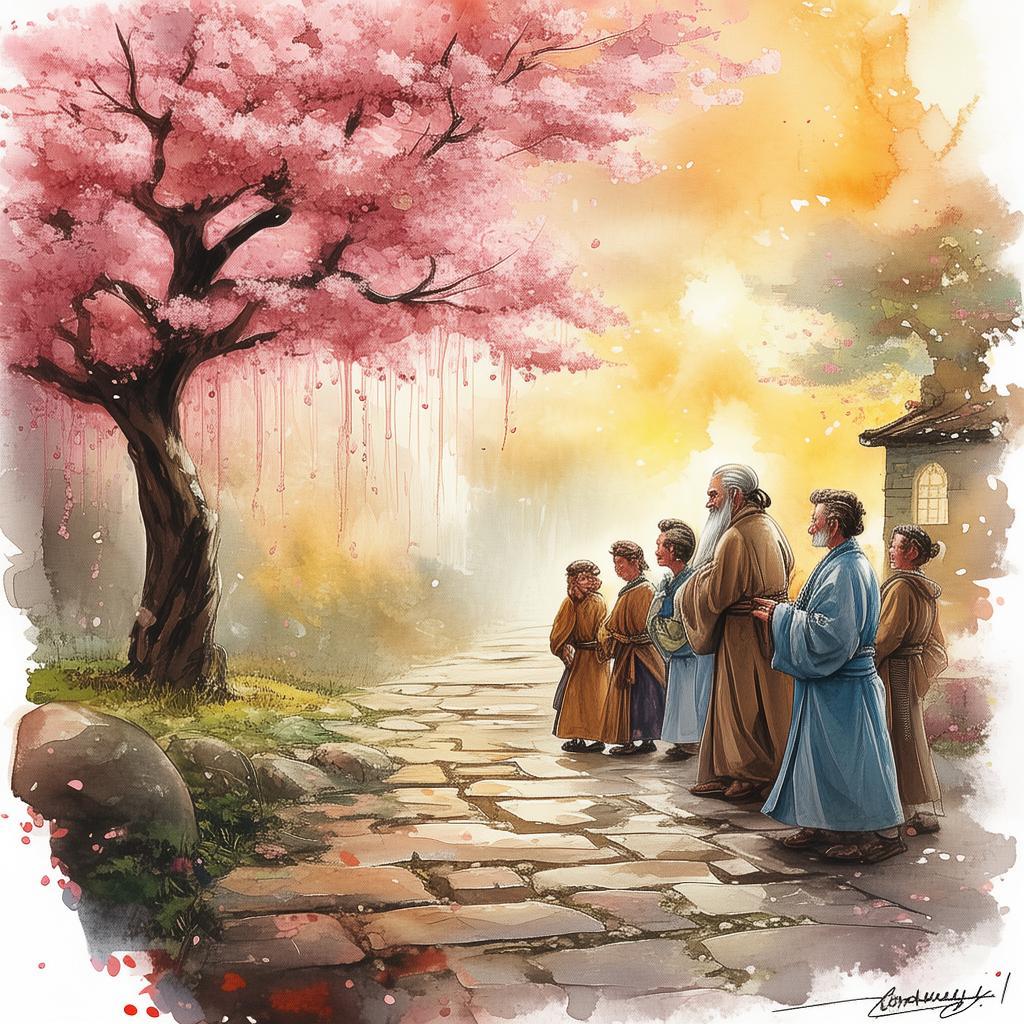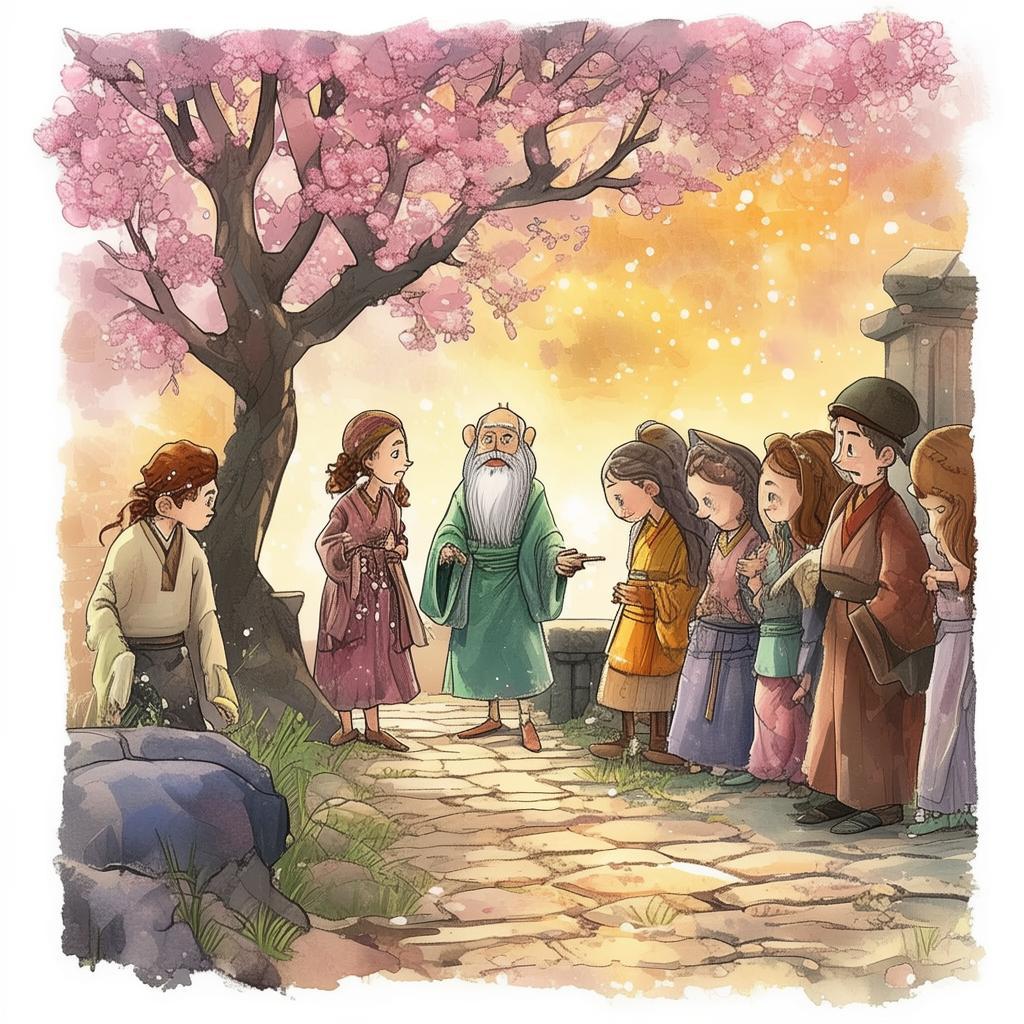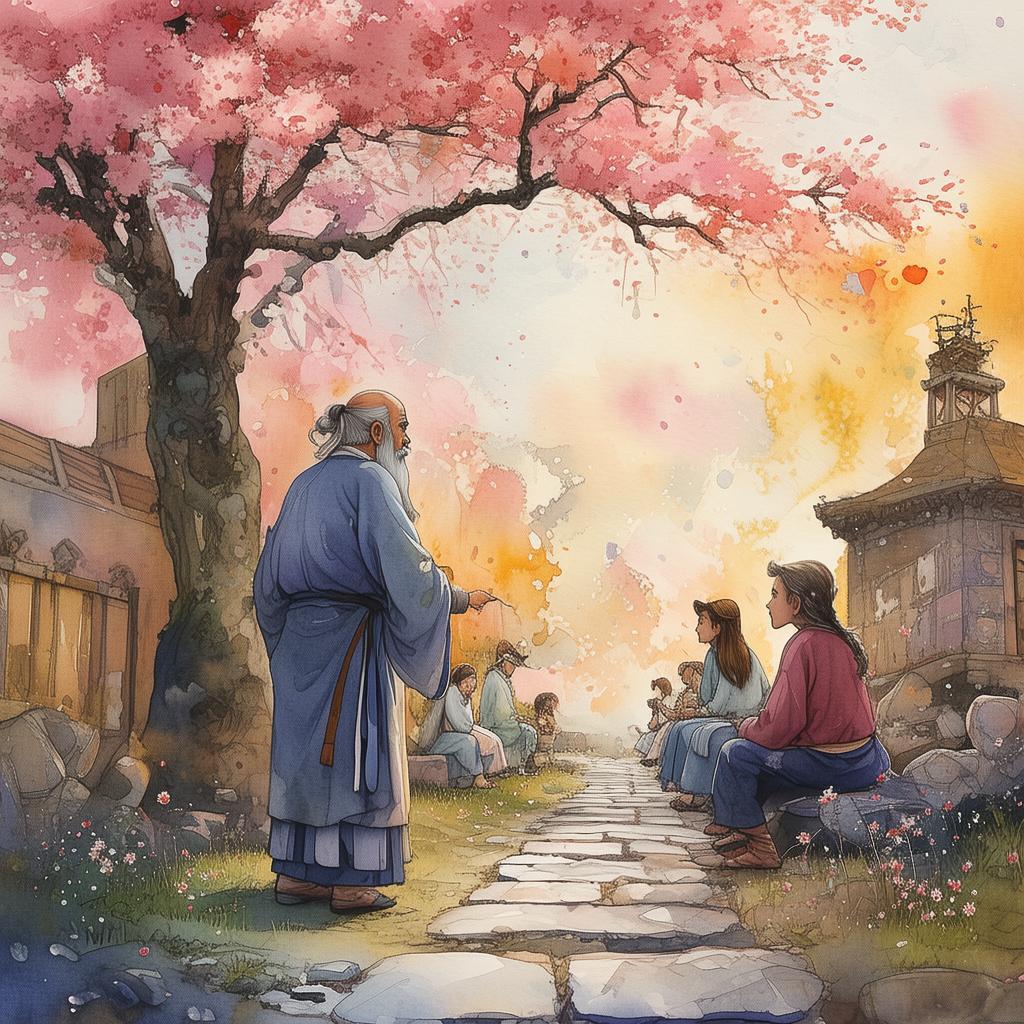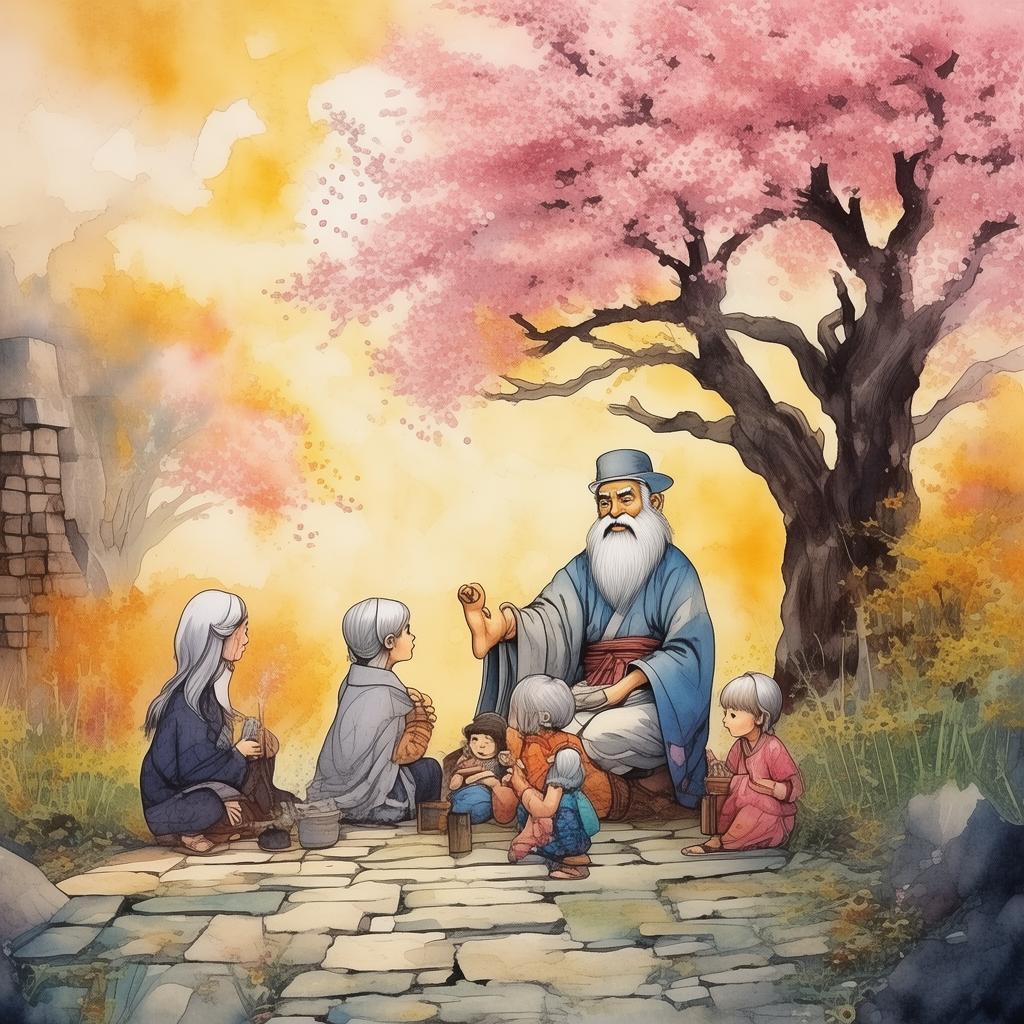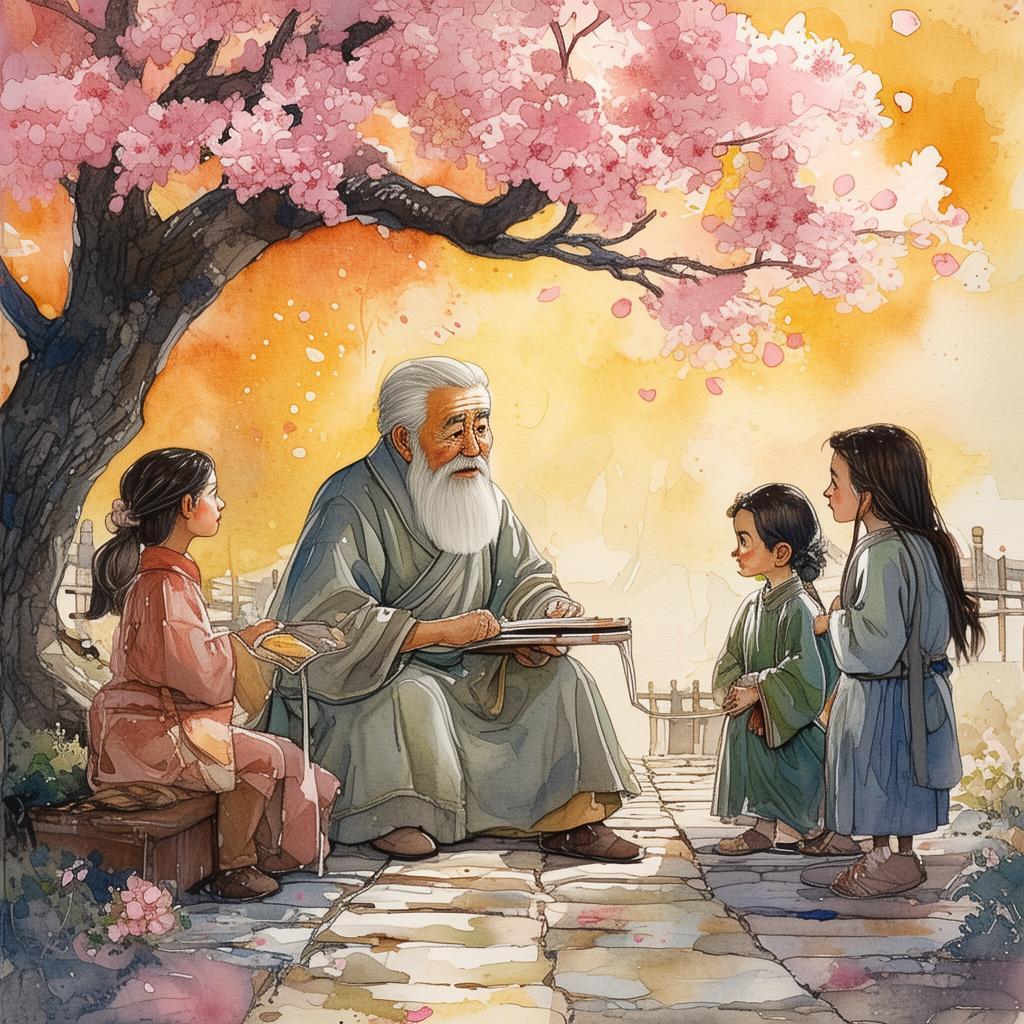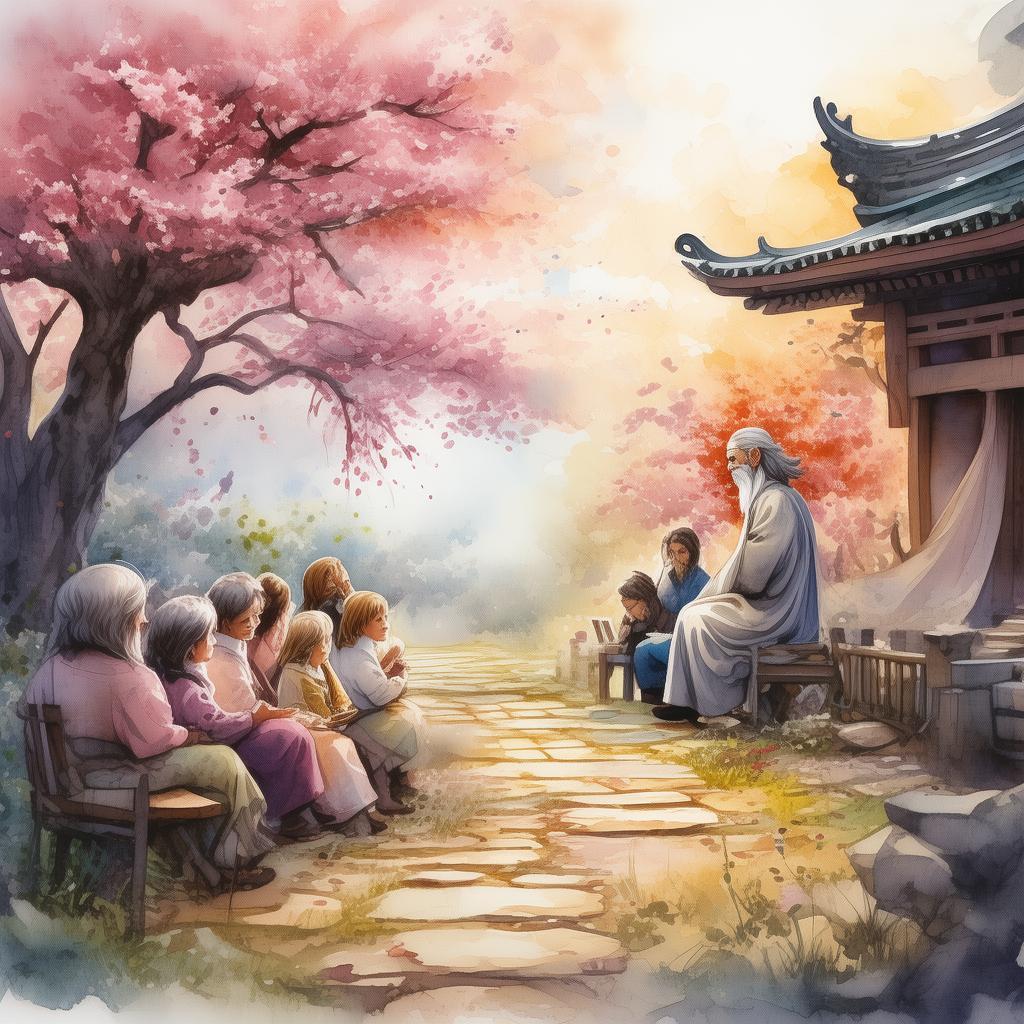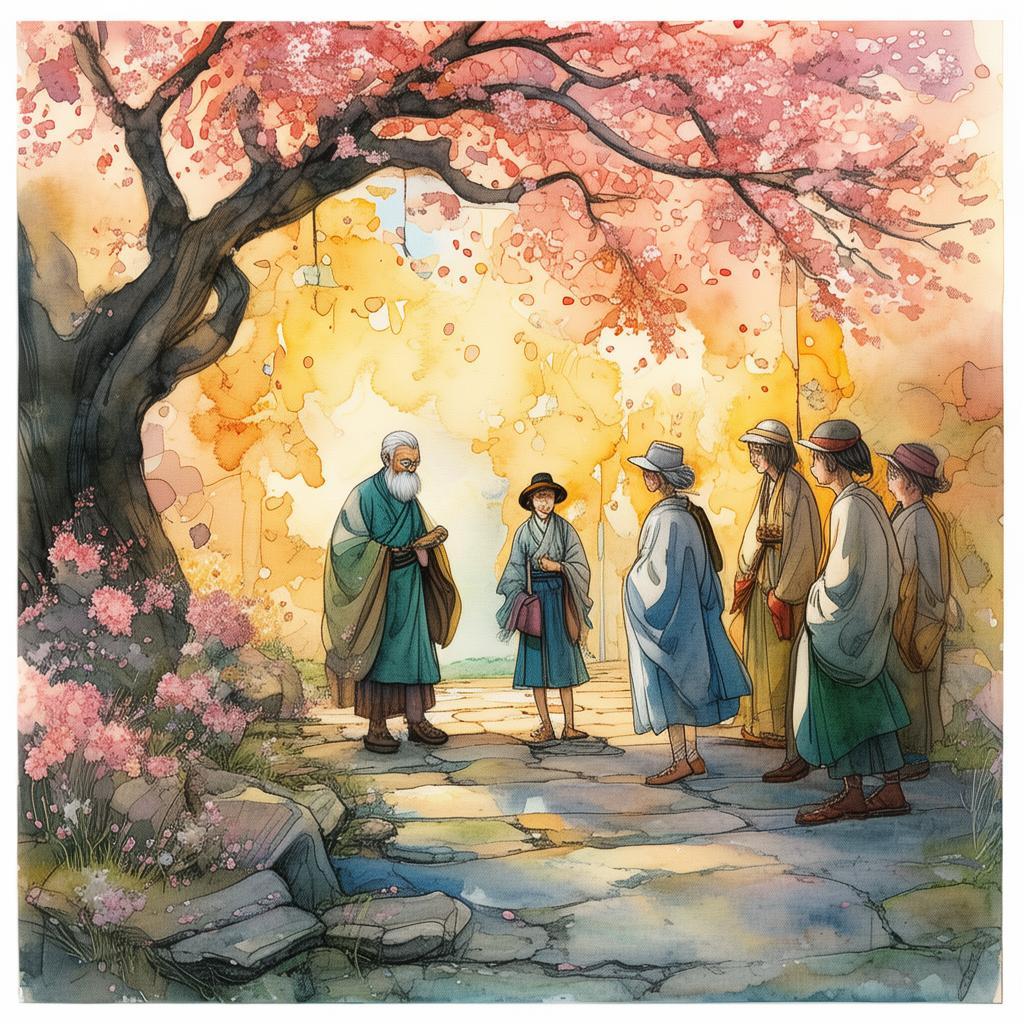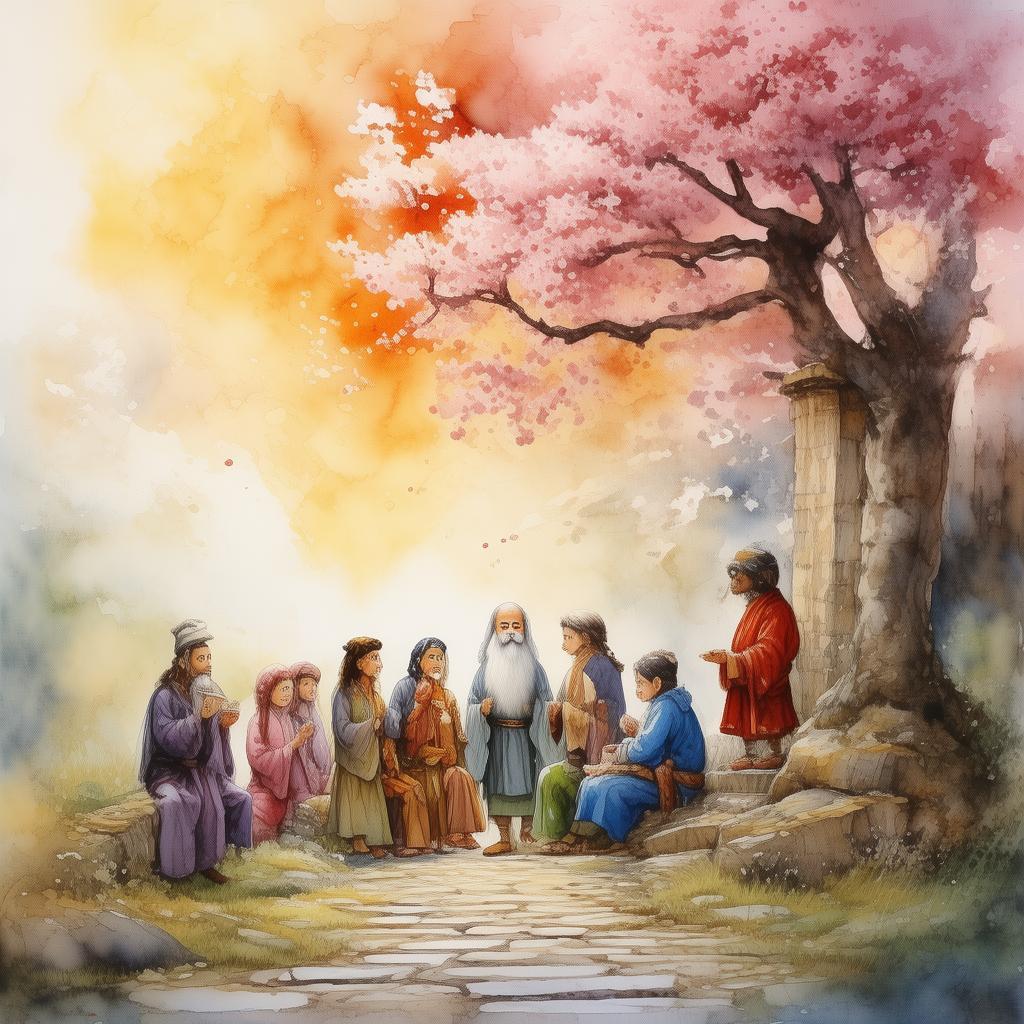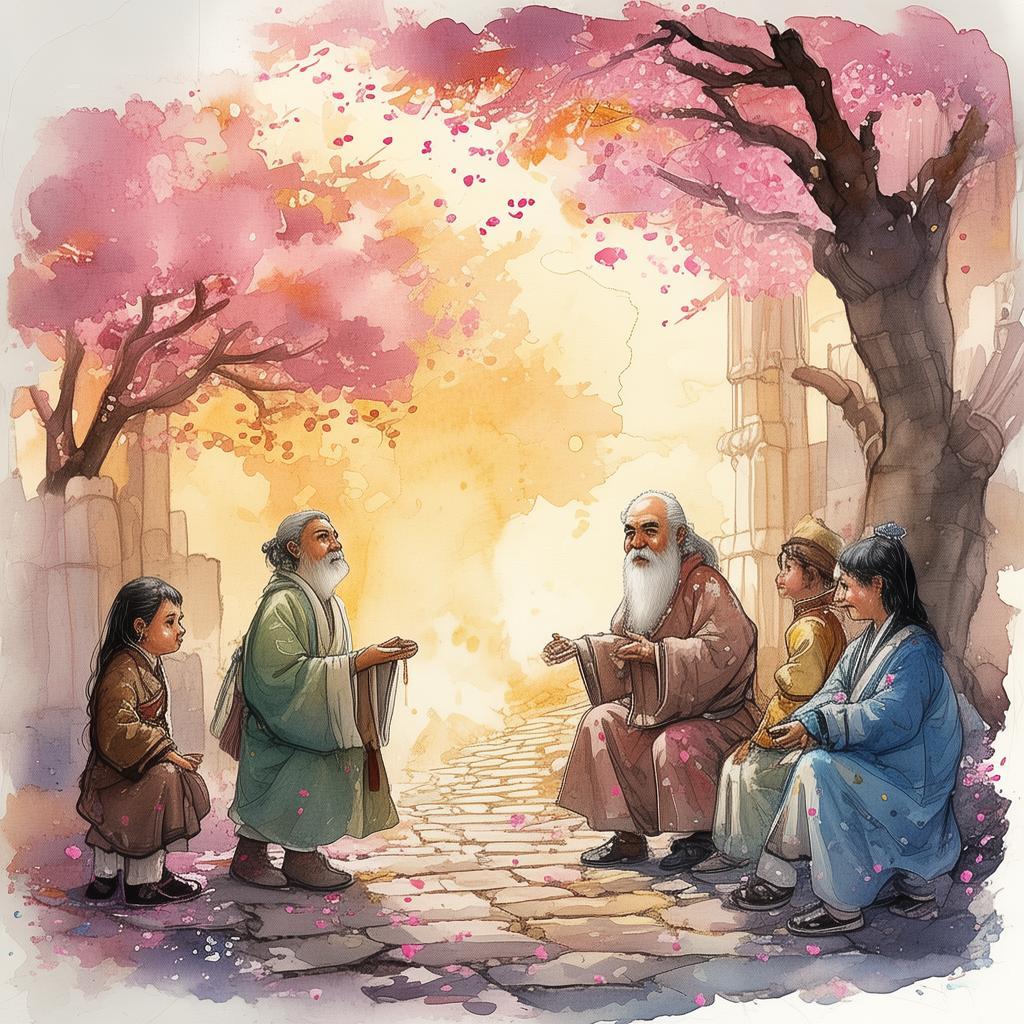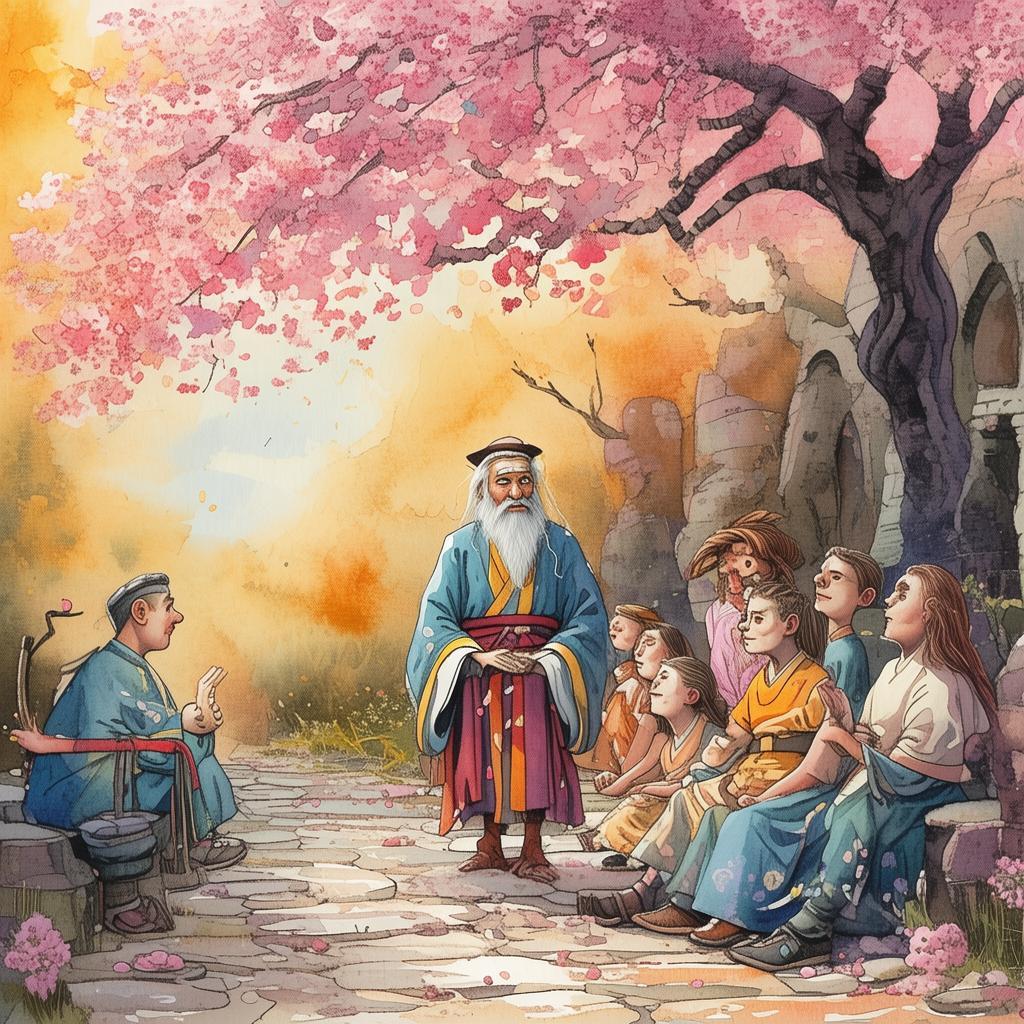Shadows of the Masses: The Illusion of Adoration
In the quaint village of Lushan, nestled among the verdant hills, there lived a man named Feng who was known far and wide for his wisdom and foresight. He was the village elder, a position he had earned through years of service and dedication. Feng was a charismatic speaker, and he had a knack for making even the most mundane of tasks seem grand and important. The villagers admired him deeply, and he was often seen as the guiding light of their community.
As the years passed, Feng's influence grew, and he began to take on a larger role in the village's affairs. He formed a council of advisors, and soon, his word was law. The villagers, in their blind adoration, followed his every instruction without question. They believed that Feng's wisdom was infallible, and they were eager to see their village flourish under his guidance.
One day, Feng announced a grand project that would bring prosperity to Lushan. He proposed the construction of a magnificent temple at the center of the village, a place where the villagers could gather to worship and offer their gratitude to the gods for their blessings. The villagers were excited; they saw this as a sign of good fortune and the beginning of a new era.
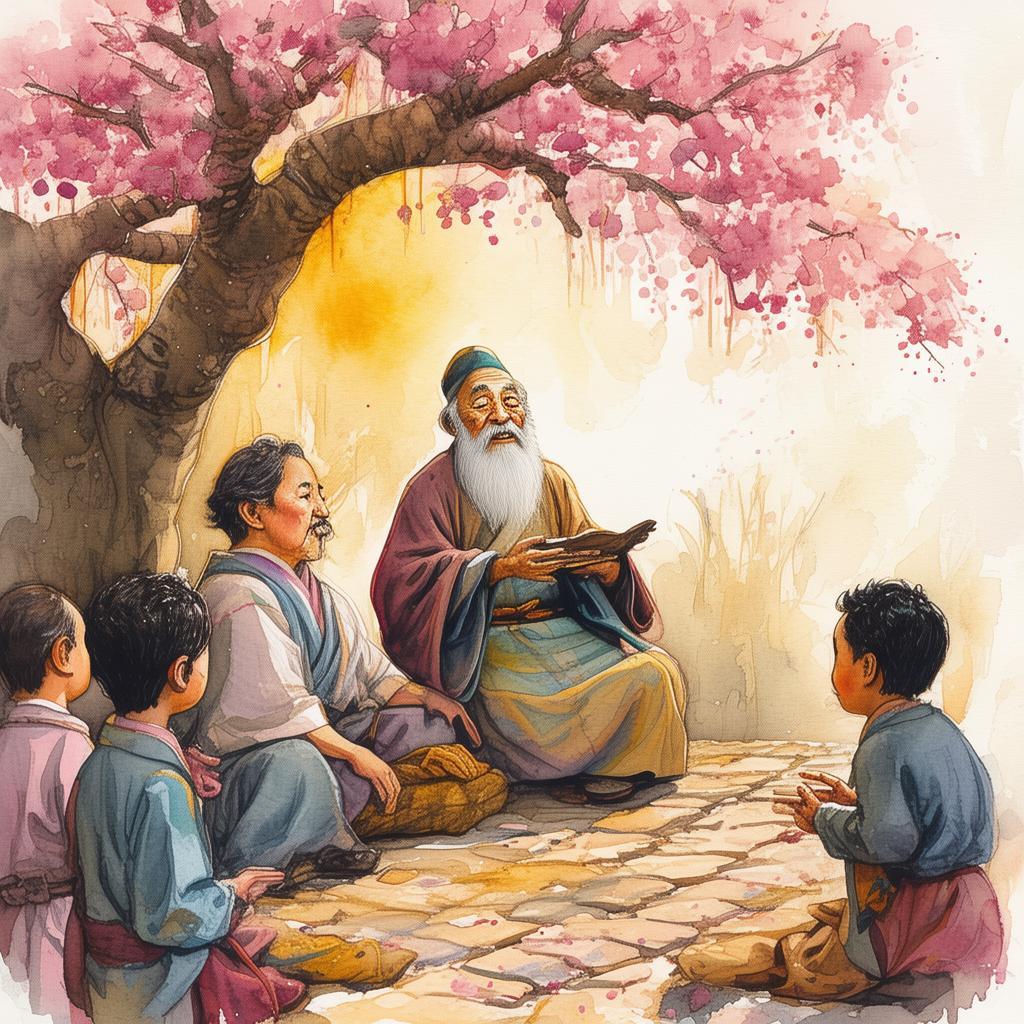
Work on the temple began, and the villagers worked tirelessly. They toiled day and night, driven by the belief that their labor would bring divine favor to the village. Feng stood at the helm, his presence a source of inspiration for all. The temple grew, and so did the villagers' reverence for Feng.
As the temple neared completion, Feng's influence became more and more controlling. He demanded that the villagers follow his every command, and any dissent was swiftly quelled. The villagers, in their fervor, did not question his decisions, for they saw him as a messenger of the gods themselves.
One night, as the temple was almost finished, Feng summoned the villagers to a meeting. He spoke of the need to prepare for an impending disaster, a great flood that would threaten the village. He declared that in order to save the villagers, they must build a massive levee to protect their homes.
The villagers, without hesitation, agreed to the plan. They worked even harder, driven by the fear of the flood and the promise of safety that Feng offered. They believed that their efforts were a testament to their faith and dedication.
But as the levee was being constructed, a strange phenomenon began to occur. The villagers started to see shadows, not of themselves or their surroundings, but of the very shadows they had been so eager to protect. These shadows seemed to follow them, whispering secrets and warnings that no one could understand.
Feng dismissed the shadows as the tricks of the devil, but the villagers were not so sure. They began to whisper among themselves, to question the wisdom of their beloved elder. But the more they questioned, the more they were shunned by their fellow villagers. Blind adoration turned to fear, and fear turned to silence.
The levee was completed, and the villagers felt a sense of relief. But the shadows continued to grow, and the whispers grew louder. Feng, sensing the unease, ordered a great festival to celebrate the completion of the levee and to reinforce his authority.
The festival was a grand affair, with music, dancing, and feasting. But as the night wore on, the shadows began to cast a dark cloud over the festivities. Feng, in his frenzy to maintain his power, ordered that the shadows be burned, believing they were a threat to his authority.
The villagers, now desperate to rid themselves of the shadows, followed Feng's command. They built a massive bonfire and threw the shadows into the flames. But as the shadows burned, they released a terrible energy that engulfed the village. The levee crumbled, and the floodgates burst open, unleashing a torrent of water upon Lushan.
The villagers, now in a panic, scrambled to escape the rising waters. But it was too late. The flood was too powerful, and the temple, which was supposed to protect them, had become their tomb. Feng, in his haste to save himself, was swept away by the current, leaving the villagers to fend for themselves.
The survivors of the flood were left to ponder the irony of their plight. They had followed Feng, their "god," into a tragedy of their own making. The village of Lushan was forever changed, and the story of the shadows became a cautionary tale for generations to come.
The lesson learned was that blind adoration can lead to disaster. The villagers had ignored the whispers of doubt, the shadows that warned them of the impending doom. They had followed Feng into a fate they could not have imagined, all because they were too afraid to question the man they had come to see as a god.
The tale of Lushan's flood was whispered for years, a reminder of the perils of unthinking devotion. And while the temple was rebuilt, the memory of the shadows remained, a testament to the folly of those who had so eagerly followed the whims of a man who had turned out to be no more than a flawed human, like them.
✨ Original Statement ✨
All articles published on this website (including but not limited to text, images, videos, and other content) are original or authorized for reposting and are protected by relevant laws. Without the explicit written permission of this website, no individual or organization may copy, modify, repost, or use the content for commercial purposes.
If you need to quote or cooperate, please contact this site for authorization. We reserve the right to pursue legal responsibility for any unauthorized use.
Hereby declared.
